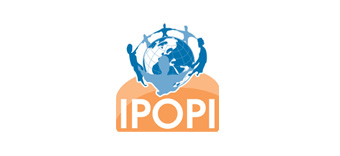December 17, 2020
EMA Update
The European Medicines Agency (the regulatory body assessing the safety and efficacy of medicines in the European Union) has kept very busy in the past months.
The Agency has been in the news several times regarding the tireless efforts to provide scientific advice to vaccines and therapeutics developers to speed up the development process of the COVID-19 vaccine while ensuring high standards of quality, safety and efficacy. In parallel to this continuous review of candidate vaccines and therapies. The Agency organised a series of other very relevant workshops and events.
The public meeting on the development and authorisation of safe and effective COVID-19 vaccines in the EU, held on December 11, was a fantastic opportunity for members of society; patients, patient representatives, doctors, researchers, etc to ask questions to EMA representatives and engage in a dialogue to better understand the work of the EMA in the assessment of vaccines for COVID-19. The video recording and an event summary have been made available by the EMA.
The Workshop on support for orphan medicines development, was held on November 30, 2020. The workshop aimed at facilitating the development of innovative drugs, especially of orphan medicines as well as to encourage early interactions of sponsors with regulators to facilitate the pre-marketing development. More information on this event is available here.
The meeting for patient & consumer organisations, as well as for healthcare professionals, on the COVID-19 pandemic, held on November 16, 2020, gave a comprehensive update on the Agency’s activities with regards to medicines and vaccines evaluation. Leire Solis, Health Policy and Advocacy Senior Manager for IPOPI, shared her perspective on the work developed by the COVID-19 EMA pandemic Task Force (COVID-EFT) as she is one of the two patient representatives present in the Task Force.
The Workshop on benefit-risk of medicines used during pregnancy and breastfeeding took place on September 22, 2020 and discussed the use of medicine for acute and chronic disorders. In Europe, very few medicines are licensed explicitly for use in pregnancy and breastfeeding due to limited understanding of benefits and risks to mother and child and how they should be balanced.
There was a call for more feedback on the use of medicines in this group as well, more pharmacovigilance and closer collaboration between obstetricians and specialists.
It is EMA’s ambition that in the medium to long term, women should have sufficient information, provided appropriately, to enable decision making on their medical treatment, given their (plans for) pregnancy or given they wish to breastfeed their baby.
EMA completed 25 years, a milestone that was observed in a virtual meeting on October 22 under the motto ‘Building, learning and adapting to new challenges. An incredible Journey!’ It was highlighted that the EMA could not have delivered achievements without stakeholders’ involvement. For the future the Agency compromised to even better integration and alignment of resources, further focus on minimising shortages, foster sustainability, further stakeholders engagement and implementation of new legislation.
If you are interested in learning more about EMA’s processes to evaluate vaccines and therapeutics, the EMA has created a very informative website.

